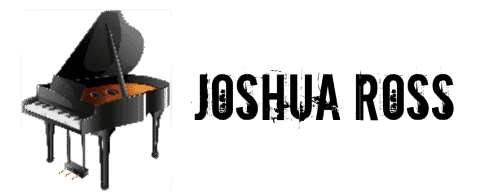As an Amazon Associate I earn from qualifying purchases.
The best age to begin piano lessons can vary; children as young as three years old may begin to explore the fundamentals of music, though structured lessons typically start later.
From my experience as a piano teacher, the most receptive age for beginning structured piano lessons is typically between five to eight years old. At this stage, many children have developed the fine motor skills and attention span necessary to engage in and benefit from lessons.
Want to Learn Piano?Click Here

When considering piano lessons for your child, it’s important to assess their readiness and interest. Playing the piano can offer a wealth of benefits, including improved coordination, concentration, and memory.
Moreover, it can also be a profound means of self-expression and creativity for your child. Assessing a child’s readiness can be as simple as noticing their inclination to experiment with sounds on a keyboard or their ability to focus on tasks.
Starting piano lessons isn’t just about age; it’s also about assessing your child’s emotional and physical readiness. They should be able to follow instructions and maintain focus for the duration of the lesson. A child who is curious about music and enjoys sitting at the piano is already showing promising signs.
Determining Readiness for Piano Lessons

Embarking on piano lessons is an exciting journey, which requires a look at certain developmental milestones and behaviors.
Physical and Cognitive Milestones
- Motor Skills: Your child’s ability to use large groups of muscles to sit, stand, walk, run, etc., should be relatively well-developed. They should also demonstrate the ability to handle small maneuvers, such as moving individual fingers to press piano keys, which is known as fine motor skills.
- Hand Size and Finger Independence: Piano playing requires fingers that can move independently of each other. Check if your child can perform tasks like typing or using scissors because these require similar dexterity.
- Cognitive Abilities: A certain level of cognitive function is necessary for understanding and interpreting music. This includes basic counting to keep rhythm and the recognition of patterns which are crucial when learning to read music.
Behavioral Indicators of Readiness
- Focus and Attention Span: Playing the piano requires the ability to sit still and focus for extended periods. Your child should be able to concentrate on a task without becoming too easily distracted.
- Interest in Music: A genuine interest in music often indicates a readiness to learn. Does your child enjoy listening to music or show curiosity about musical instruments? Sometimes, I’ll see parents force their children to take piano lessons for discipline purposes. The problem is that teachers are often stressed by dealing with a student who has zero interest in the activity. They should be encouraged to play, never forced.
- Ability to Follow Instructions: Learning to play an instrument like the piano involves a lot of instruction-following. Assess if your child can listen to and follow through with directions during other activities.
Establishing a Foundation for Musical Education
Before immersing your child into the world of music education, it’s crucial to lay a sturdy foundation. Your child’s success in learning piano hinges on a supportive environment and a consistent, methodical approach to practice.
Creating an Effective Learning Environment
To encourage your child’s musical journey, the learning environment should be quiet and free from distractions. A dedicated space with a well-tuned piano invites focus and establishes a sense of seriousness. Ensure the piano is accessible and at a comfortable height for your child.
Bright, adequate lighting and a supportive seat are also essential. A positive atmosphere not only facilitates learning but also fosters a deep desire to learn.
Encouraging Practice and Persistence
Regular practice is fundamental for progress in piano. Starting with as little as 30 minutes of focused practice daily can make a significant difference. Develop a routine to help your child manage this time effectively:
- Set specific practice times each day to cultivate a sense of discipline and commitment.
- Use time management techniques, such as a timer or a clock in the practice area, to keep sessions structured.
- Encourage short, frequent breaks during practice to maintain engagement and prevent fatigue.
Hello & thanks for stopping by! I’m a professional concert pianist and piano instructor. In the United States, I’ve given successful performances in several places including New York, Florida, Connecticut, & New Jersey, I have also performed internationally in Italy and made my Carnegie Hall debut in 2014. I enjoy blogging about the piano, the art of performance, general music, current events and the latest in music production.
